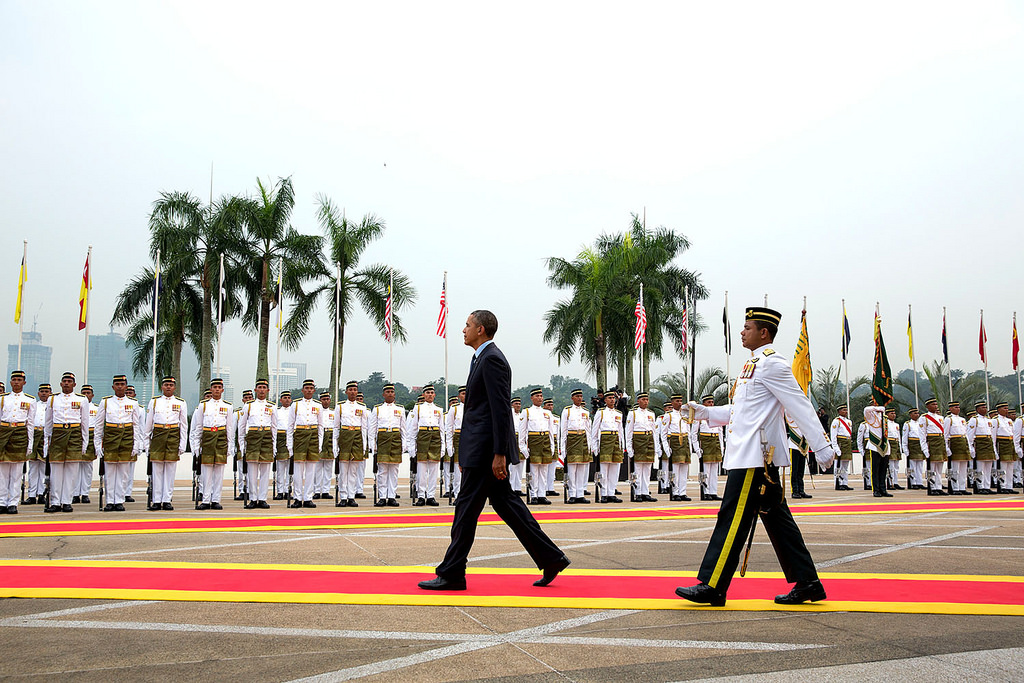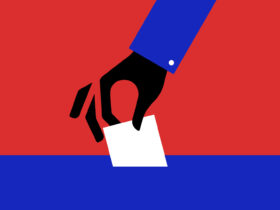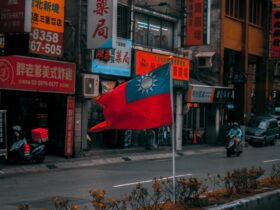China’s soft historical and current approaches to soft power have been characterized by state-sponsored media programs, the establishment of Confucius Institutes and the policy implementation of the Belt and Road Initiative. Soft power, a term coined by American political scientist Joseph Nye in the late 1980s, is a method of political persuasion that relies on cultural influence to shape the country’s international appeal. For China, these initiatives have been informed by the idea that direct propaganda can effectively reinforce the Communist Party’s image.
With the evolution and proliferation of Chinese popular culture, such as Chinese superstars collaborating with global music artists and Chinese singer and rapper Jackson Wang becoming Billboard’s top emerging act in the U.S., China has launched a new strategy to promote its national image. This new strategy uses the nationalistic narratives of Chinese idols: celebrities and icons defined by their cult-like followings.
Evaluating China’s current soft power tools first requires an understanding of the contemporary idol as a reflection of national image. The Chinese idol, who is an individual often regarded as forming a sub-group of the celebrity, is deeply linked with the rise of celebrity worship and the growth of China’s consumer culture. Fans — or consumers — are responsible for the prominence of idol culture in China.
Fandoms establish themselves as a dominant presence when it comes to promoting idols, specifically because of the power in collectivity. Fans are able to organize marketing campaigns for their idols and contribute to outpourings of support. According to Sixth Tone writer Zeng Yuli, they are the ones who monopolize public discourse surrounding the idol’s reputation, amplifying their popularity.
Given how the Chinese idol reflects a wider culture, it is no surprise that China now sees idols and their fans as a critical investment in China’s national image. The popular Chinese Pop, or C-Pop, idol group TFBoys has millions of fans across an international demographic. The three-member music group rose to fame for their “wholesome” and, for the most part, controversy-free image. They are the posterboys for China’s political values; in addition to performing at state-sponsored CCTV galas, they also sing about pro-nationalism and patriotic themes.
In 2015, TFBoys were invited to cover the official anthem of the Communist Youth League of China: “We Are the Successors of Communism.” And fans of TFBoys, who have an all-consuming devotion to their idols, can often be indoctrinated into this ideology. They support what their idols promote. The consumption of their idols’ content can become akin to the consumption of government values.
Lay Zhang, or Zhang Yixing as he is formally known in China, is a Chinese idol who is well-known for his close affiliation with the Chinese Communist Party. Not only is Zhang currently the publicity ambassador for Hunan Province’s Communist Youth League of China, but he frequently demonstrates his alignment with the Communist Party’s values, such as issuing a message of support for the Hong Kong police during the 2019 Hong Kong protests. In 2017, Zhang — along with other popular Chinese idols such as Lu Han and Ma Tianyu, starred in the 2017 propaganda film The Founding of an Army, which chronicles the origins of the Chinese military and promotes a nationalistic approach to history. Although the film was a box office failure, the participation of China’s biggest idols affirmed that there is often little to no separation between popular culture and politics.
The positivity and attractiveness of the idol’s image is measured by how well they “conform” to the agenda of the CCP. And as such, the concept of the idol is strongly involved in the creation of a Chinese national identity. The interconnected relationship between the Chinese government and the country’s entertainment industry has made it clear that certain aspects of Chinese culture is promoted, so long as they express the country’s dominant political ideology.
Despite the clear linkage between the Chinese idol and the national image, China’s efforts to promote soft power abroad have not directly been through Chinese idols, but through their fans. Given the global reach of Chinese idols across the Chinese diaspora, Chinese youth often feel inspired by the ideals promoted by their idols. Emboldened, these fans post patriotic messages of support for their country online, expressing pro-China sentiments — similar to those expressed by Lay Zhang — and defending the country’s actions in Hong Kong.
While it is clear that to some extent, China’s push of its popular culture has established a formidable cultural presence through young Chinese people across the world, this is only one measurement of its influence. In terms of U.S.-China relations, attempts to project domestic propaganda abroad through Chinese idols are still largely thwarted by political, economic, and social factors.
For the most part, the Chinese idol is not accessible to American audiences. It is important to recognize that economically, the Chinese domestic market is so large that Chinese idols often do not seek to expand beyond the nation’s borders. As a result, the strength of this cultural diplomacy strategy is limited. Along with the failure to effectively market themselves online given China’s censorship of most American social media platforms, Chinese music groups and celebrity idols’ few attempts to expand their reach are restricted by the powers of the state.
The other reason can largely be attributed to the perception of China in the West, which continues to be strongly influenced by negative portrayals of the country in the American news media. Within mainstream media, China is still constructed in terms of its human rights violations and its repressive regime. This framing of China has wider implications for the success of China’s soft power campaign.
South Korea’s soft power initiative — through K-Pop idols and the Korean Wave of entertainment — has been largely successful due to Americans’ more willing acceptance of products from South Korea’s capitalist economy. Alternatively, China’s attempts to boost its national image are prevented by the nature of its politics.
It is difficult to determine whether Chinese idols, who can often feel politically and socially obligated to act as a mouthpiece for the Chinese government, can truly promote a positive image of China within the U.S. While it is clear that the West may be less receptive to a culture that remains a mechanism for authoritarian politics, it is also worth asking whether China can navigate the issues that come with such a public diplomacy strategy.
Given this challenge, only time will tell whether Chinese idols can redefine their context to achieve greater prominence in the West.







